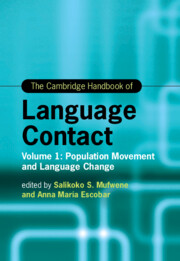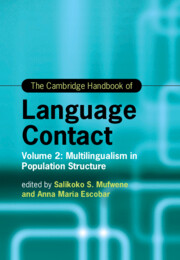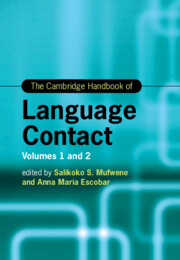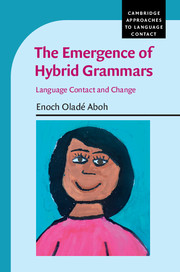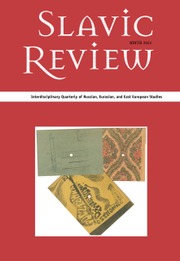The Cambridge Handbook of Language Contact
Volume 1: Population Movement and Language Change
£125.00
Part of Cambridge Handbooks in Language and Linguistics
- Editors:
- Salikoko S. Mufwene, University of Chicago
- Anna María Escobar, University of Illinois, Urbana-Champaign
- Date Published: June 2022
- availability: Available
- format: Hardback
- isbn: 9781009098649
£
125.00
Hardback
Other available formats:
eBook
Looking for an inspection copy?
This title is not currently available on inspection
-
Language contact - the linguistic and social outcomes of two or more languages coming into contact with each other - has been pervasive in human history. However, where histories of language contact are comparable, experiences of migrant populations have been only similar, not identical. Given this, how does language contact work? With contributions from an international team of scholars, this Handbook - the first in a two-volume set - delves into this question from multiple perspectives and provides state-of-the-art research on population movement and language contact and change. It begins with an overview of how language contact as a research area has evolved since the late 19th century. The chapters then cover various processes and theoretical issues associated with population movement and language contact worldwide. It is essential reading for anybody interested in the dynamics of social interactions in diverse contact settings and how the changing ecologies influence the linguistic outcomes.
Read more- Provides examples of socioeconomic history as a background for the phenomena discussed, along with an extensive and diverse bibliography.
- Offers examples of interdisciplinary research.
- Includes illustrations and maps, to help the reader situate the contents geographically.
Reviews & endorsements
'In this two-volume Cambridge handbook, Mufwene and Escobar have assembled four dozen novel studies on linguistic change, as induced or conditioned by migration, language contact, multilingualism and population structure. This hefty new reference work provides an important resource on language change in the living context of human societies.' George van Driem, Chair of Historical Linguistics, University of Bern
See more reviews'What a treasure! - two volumes, 47 chapters, written by the foremost authorities, dazzling in the depth and breadth of its coverage of all aspects of language contact. A truly monumental contribution, destined to be the go-to reference for decades to come.' Lyle Campbell, University of Hawai'i, Mānoa
'With its global scope and inclusive approach, this work offers the most comprehensive overview of language contact to date. With contributions from leading specialists in each topic and region under the leadership of Mufwene and Escobar, the Handbook provides authoritative and state-of-the-art coverage of a vibrant and rapidly evolving field.' Stephen Matthews, University of Hong Kong
'Impressive.' Maggie Scott, The Year's Work in English Studies
Customer reviews
Not yet reviewed
Be the first to review
Review was not posted due to profanity
×Product details
- Date Published: June 2022
- format: Hardback
- isbn: 9781009098649
- length: 782 pages
- dimensions: 250 x 174 x 45 mm
- weight: 1.41kg
- availability: Available
Table of Contents
List of contributors
List of figures
List of tables
Preface
Introduction
1. Language contact: what a rich and intellectually stimulating history since the late 19th century! Salikoko S. Mufwene and Anna María Escobar
Part I. Language Contact and Genetic Linguistics:
2. Language contact and historical linguistics Brian D. Joseph
3. The Chinese expansion and language coexistence in modern China Randy J. LaPolla
4. Tracing language contact in Africa's past Bonny Sands
5. Populations in contact: linguistic, archaeological, and genomic evidence for Indo-European diffusion Bridget Drinka
6. The impact of autochthonous languages on Bantu language variation: a comparative view on southern and central Africa Koen Bostoen and Hilde Gunnink
Part II. Linguistic Areas:
7. The Balkans Victor A. Friedman
8. The Amazon basin: linguistic areas and language contact Alexandra Y. Aikhenvald
9. Migration and trade as drivers of language spread and contact in indigenous Latin America Thiago Costa Chacon
10. Language contact in South Asia Hans Henrich Hock
Part III. Language Spread:
11. The geographic and demographic expansion of Malay James T. Collins
12. Geographic and demographic spread of Swahili Alamin Mazrui
13. Arabic language contact Jonathan Owens
Part IV. Emergence and Spread of Some European Languages:
14. The emergence and evolution of romance languages in Europe and the Americas John M. Lipski
15. The expansion and evolution of Portuguese J. Clancy Clements
16. French and English in contact in North America Robert A. Papen
17. French in African contact settings Cécile B. Vigouroux
18. The geographical and demographic expansion of English Edgar W. Schneider and Sarah Buschfeld
Part V. Language Diasporas:
19. Diasporas: an overview Dirk Hoerder and Henry Yu
20. Labor migrations: language change in communities and diasporas Dirk Hoerder and Henry Yu
21. The Korean diaspora Joseph Sung-Yul Park
22. The Chinese diaspora: language maintenance and loss Sherman Lee
23. The diachrony of Yiddish and Judaeo-Spanish as contact languages Marie-Christine Bornes Varol and Anne Szulmajster-Celnikier
Author index
Subject index.
Sorry, this resource is locked
Please register or sign in to request access. If you are having problems accessing these resources please email [email protected]
Register Sign in» Proceed
You are now leaving the Cambridge University Press website. Your eBook purchase and download will be completed by our partner www.ebooks.com. Please see the permission section of the www.ebooks.com catalogue page for details of the print & copy limits on our eBooks.
Continue ×Are you sure you want to delete your account?
This cannot be undone.
Thank you for your feedback which will help us improve our service.
If you requested a response, we will make sure to get back to you shortly.
×
